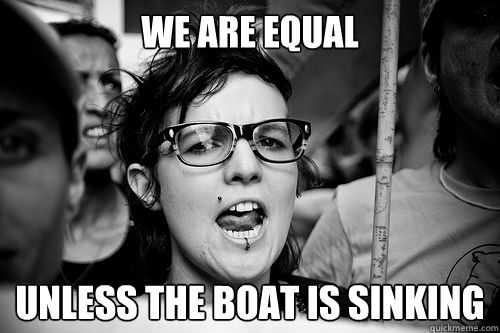I never before saw any relationship between women's ordination and chess. That all changed back in October.
As a child, I often heard my parents and grandparents speak of the evils of chess and checkers—according to Ellen White. I never quite understood it, except as it might draw people into gambling, or perhaps just be a waste of time. But, seeing a picture used for the Fulcrum7 article on “Kingly Power” depicting a chess king surrounded by his “men” brought me an epiphany. It at once appeared to me as though I saw through it all a larger scheme—one that has been building for all of time.
Consider the beautiful Garden of Eden. The holy, sinless pair were made to be equals, albeit Eve was clearly made for Adam, to whom God had already given the privilege of naming the animals. God named Adam, but Adam named Eve—a representation of the natural inherited authority structure that was present even before their sin. Perhaps, subconsciously, Eve felt this. We know Adam was taller than Eve 1, and we know that Eve had been told to stay with him for her own safety. 2 We know he was to be her protector. 3 But when she realized she had wandered from his side, she dismissed her fears and thought herself capable on her own—without him. Has it always been thus in times since?
Women today crave independence. They crave “empowerment.” In order to achieve these things, they seek to be ever more dominant, both in the home circle and in society. Instead of seeking to remain with their protectors, with its benefits of guidance and leadership, they frequently choose to wander freely on their own. For some unexplainable reason, many men even side with them in their unnatural quest.
What happened to the “knight in shining armor”? Does he now have less value? In chess, the knight certainly has less value than the queen. Do modern men feel women are of greater worth than they are? Is society dealing with a trend in masculine inferiority complex? I remember that, as a child, I wished longingly that I had been born a girl—not because I had any feminine thoughts or tastes, not because I was confused about my gender identity, but because I thought girls had an easier path to heaven. And girls had it all: the best rooms and dormitories at school, the nicest treatment, the best reputation. Boys were considered to be the troublemakers, less polite, and certainly less attractive.
In the real world, height subconsciously translates to power. Have you ever noticed how many men versus women wear high heels? Why do women seek to add to their height? Are they unhappy with how God made them? Back to chess. The queen is taller than the knights. And more powerful too.
But here's what took me a little by surprise as the imagery came boldly to my mind: the king in chess has less power than his queen! As Christians, we might see a Biblical relationship between the King and His bride (the queen). The King is respected, loved, and obeyed. But in chess, the tables are turned. Instead of the king protecting the queen, she protects him. Instead of the king having greater power than the queen, she has the greatest power of any piece in the game. Is the entire setup meant as an affront against God—a taunt meant to impugn His rightful place and power?
Take it one step further. What is women's empowerment today—including the push toward women's ordination taking the church by storm—really all about? Is Satan using us as his pawns in a grand game of chess against God? Is he using women especially? Ellen White alludes to this, saying Satan chooses women because he can use them more successfully than men. 4 Is that what the game of chess illustrates? But, in place of Satan saying “checkmate,” I expect to hear God saying “on guard!”
****
[i] Eve was not as tall as Adam. Her head reached a little above his shoulders. She, too, was noble--perfect in symmetry, and very beautiful. {1SP 24.2}
[i] Eve, unconsciously at first, separated from her husband in her employment. When she became aware of the fact, she felt that there might be danger; but again she thought herself secure, even if she did not remain close by the side of her husband. She had wisdom and strength to know if evil came, and to meet it. This the angels had cautioned her not to do. . . . {1SP 35.2}
[i] God Himself gave Adam a companion. He provided "an help meet for him"--a helper corresponding to him--one who was fitted to be his companion, and who could be one with him in love and sympathy. Eve was created from a rib taken from the side of Adam, signifying that she was not to control him as the head, nor to be trampled under his feet as an inferior, but to stand by his side as an equal, to be loved and protected by him. A part of man, bone of his bone, and flesh of his flesh, she was his second self, showing the close union and the affectionate attachment that should exist in this relation. "For no man ever yet hated his own flesh; but nourisheth and cherisheth it." Ephesians 5:29. "Therefore shall a man leave his father and his mother, and shall cleave unto his wife; and they shall be one." {PP 46.2}
[i] Thus Satan used an unconsecrated woman to sway the heart of the king, and through the king to cause all Israel to sin. It is a terrible thing to be an instrument in the hands of Satan. Satan chooses women, for he can use them more successfully than he can men.--Ms. 29, 1911, p. 13. ("Fragments of Old Testament History," November 17, 1911.) White Estate Washington, D. C. July 16, 1980 {10MR 76.2}


